- Home
- Karin Kallmaker
Christabel
Christabel Read online
Copyright© 2008 Karin Kallmaker
Bella Books, Inc.
P.O. Box 10543
Tallahassee, FL. 32302
All rights reserved. No part of this book may be reproduced or transmitted in any form or by any means, electronic or mechanical, including photocopying, without permission in writing from the publisher.
First Edition: Naiad Press 1998
First Bella Books Revised Edition 2008
This novel was originally released under the pen name Laura Adams in 1998 by The Naiad Press. This second edition has been augmented with substantial additional text and contains editorial changes from the original.
Printed in the United States of America on acid-free paper
Cover designer: Linda Callaghan
ISBN 10: 1-59493-134-8
ISBN 13: 978-1-59493-134-5
Bella Book Titles by Karin Kallmaker
The Kiss the Counted
Finders Keepers
Just Like That
Sugar
One Degree of Separation
Maybe Next Time
Substitute for Love
Frosting on the Cake
Unforgettable
Watermark
Making Up for Lost Time
Embrace in Motion
Wild Things
Painted Moon
Car Pool
Paperback Romance
Touchwood
In Every Port
18th & Castro
All the Wrong Places
New Exploits Series:
Tall in the Saddle,
Stake through the Heart,
Bell, Book and Dyke,
Once Upon a Dyke
Feel free to visit www.kallmaker.com
In memory of Jeannette H. Foster
whose analysis of Samuel Coleridge’s Christabel made me realize there was a different story to tell; a young woman falling under the spell of a beautiful witch is not necessarily a bad thing.
Halley’s Comet appeared in 1682. Edmond Halley identified it as a naturally recurring phenomenon. The rampantly superstitious Puritans were not so scientific.
About the Author
The author of more than twenty romances and fantasy-science fiction novels, Karin Kallmaker’s repertoire includes the award-winning Just Like That, Maybe Next Time, Sugar and 18th & Castro. Short stories have appeared in anthologies from publishers like Alyson, Bold Strokes, Circlet and Haworth, as well as novellas and short stories with Bella Books. She began her writing career with the venerable Naiad Press and continues with Bella.
Karin’s work can be found at www.bellabooks.com. Details and background about her novels and upcoming works can be found at kallmaker.com.
Chapter 1
It had finally stopped raining.
Mud slopped into Christabel’s boots, but her feet were already so cold and wet it made no difference. She could have saved herself from some of the muck if she had used the sidewalk, but boots scuffing on wood this late at night might make someone curious.
Her mind was churning with fear over what she was about to do. Force of habit was the only reason she remembered to cross the street before she passed the Dawson’s house. The Dawson family refused to accept the new ways in the colony, in spite of Lord Berkeley’s order to the contrary, and clung to the habits of the land of their birth—well, just about everybody’s birth. In London, all types of refuse, from kitchen offal to chamber waste, were flung out the windows into the street. No one ever walked in front of the Dawson house. It was a disgrace, her father said. Mr. Albright, who had the Lord Berkeley’s ear, hinted that come summer the Dawsons could find themselves deported.
All the houses she passed, big and small, were shuttered against the bitter night, but some lamplight peeked through. It wasn’t enough to reveal her quiet but rapid passage through the rain-soaked streets. She was just a dark figure on a dark night, perhaps just a trick of the wind.
It didn’t take long to wend her way past the millpond and through the sluice gate. It was the only way out of the township fort without going through the gates or by boat. She was soaked from the hips down when she scrambled up the side of the creek. In the distance she could hear the steady roar of the Hudson River, running fast and strong. It had been a wet but not freezing winter so far; there was no sign of any ice on the water’s surface.
She reevaluated the temperature once she was out of the millpond. The wind was like a frozen knife through her wet clothes, and her first few steps revealed ice slivers forming on the puddles. Ma always said that January was worse than December—she was right, as usual.
When she came abreast of the entrance to the Governor’s estate, Christabel stopped to get her bearings. The iron fence and heavy gates were fettered with chains and ropes, which, as she drew closer, turned into the barren stems of Lady Berkeley’s English roses. It was hard to believe the fallow, dank fields would yield corn and tulips come spring. She was not pursued, nor was there any sign of a watch at the gates. The night was too bitter for anyone to believe that a girl her age would sleep out-of-doors. It was unthinkable. That was why she was going to do it.
She was going to prove that being born here in the colony made her tougher and stronger and smarter than any sissified brat from England. If Pa and men like him hadn’t helped the Duke of York take all of New Amsterdam from the Dutch, her ladyship Bitsy Albright wouldn’t even be here. Bitsy Albright might have a fancy lace collar and a pair of fine linen hose but she was not Queen Mary for all the airs she gave herself.
For all her self-satisfied ways, Bitsy was dying to find out if what that old native woman had told her cousin about the Witching Tree was true. That if a young girl slept under it for one night she would dream of her true love. The old woman hadn’t called it the Witching Tree. That was Bitsy’s name for it. But Bitsy was too cowardly to find out for herself.
She was going to sleep under the tree and show Bitsy and her gaggle of giggling friends for the cowards they were. She knew she wasn’t going to dream any nonsense about true loves and weddings—she wasn’t interested in any of the boys. They were callow clods, every single one of them. Billy Buckley was the only one she even remotely liked, because he had some guts. The idea of sharing a bed with him, doing any of the mystifying things that Bitsy giggled knowingly about, but wouldn’t describe, well, that just wasn’t going to happen with any boy in town. Billy Buckley wasn’t going to be in her dreams. She wasn’t going to dream. She never did.
She guessed she’d been plodding along for about an hour when she left the last outbuilding of Peter Stuyvesant’s huge Bouwerie behind. Why the former Dutch governor of the colony hadn’t gone home again was a mystery. He could have easily sold the estate. He was on good terms with Lord Berkeley, even though Lord Berkeley had been the leader of the invasion fleet that had taken New Amsterdam—now New York and New Jersey—from the Dutch colonizers.
Christabel wondered what it must feel like to have something you’d built with your own two hands taken away from you just because someone else had five hundred soldiers, a small fleet of ships and the patronage of the powerful Duke of York behind him. Of course, Peter Stuyvesant’s militia had wrested the lower island from the Manhattan people to start with. She’d mentioned that to Pa once, and he’d said we’d all be gone and buried before anyone could say for a certainty who would rule this little bit of land. It wasn’t as if it was a very important location.
Some of the other Dutch families had lingered as well, mostly the merchants who had good trade and good sense to deal with the new English settlers fairly. The Roosevelts still got the finest linens from Europe, and Pa said if you wanted a house built, the Rikers were the best you could do.
The wood thickened as Christabel made her way to
ward the center of the island. The bony fingers of bare sugar maples reached for her—but that was just nonsense, she told herself sternly. Reverend Gorony could preach all he wanted about demons and devil spawn, but she didn’t believe it. If all was His creation, surely God had better things to do than create evil creatures. She thought they were just stories to scare people. Well, she wasn’t scared.
She stifled a scream when an owl hooted near her, and she struggled faster through the mud. Even in the dark she knew she could find the tree. When they picked berries in the summer it was a favorite place to gather and eat because it was unmistakable: a lone oak in a forest of pines and sugar maples. Its low branches invited climbing. She had climbed to the top once, but the whipping that had followed when Ma found out had made her give up climbing. It wasn’t fair. Billy Buckley hadn’t gone up nearly as high as she had, and everyone had made a big fuss over it. None of them had known that the natives thought the tree had magic in its roots.
Reverend Gorony would have her pilloried if he ever found out she had given a moment’s thought to what was surely devil’s mischief. If the native women believed the tree held magic, that was an unmistakable sign of Satan’s influence—the Manhattans were godless and unclean. The women were indecently attired most of the time. Reverend Gorony said their presence made the island a breeding ground for Satan. Only the ones who had accepted the Church were welcome inside the gates. He’d said so just last Sunday. He’d been so adamant about it, most of the merchants had taken to buying their goods—furs, venison and fish, mostly—outside the township proper.
The native wickedness had never seemed certain to Christabel. She was the eldest of the colony-born English children, and she was no more wicked than the English-born ones. Perhaps that’s why she wasn’t particularly afraid of the natives. Bitsy and Cherry squealed and ran for cover if one of the men even walked in the street. And as far as wickedness goes, she’d noticed that, for all of Reverend Gorony’s warnings about their temptations, plenty of the menfolk didn’t bother to avert their eyes when a woman Manhattan rode astride.
She slopped on through the muck and rotting leaves. The track was rutted and full of puddles she couldn’t see even when she was up to her ankles in them. When she lifted her sopping feet, her boots made a horrible sucking sound as if the frigid ground wanted to swallow her whole.
By the time she turned toward the spacious grove where the oak tree was centered, Christabel was shaking with cold. She was worried, too, about how to explain the condition of her clothes to her mother. She hadn’t realized it would be so muddy. She was supposed to be sleeping at Bitsy’s tonight. Goodwife Albright would never have let Christabel get so filthy and then sleep on her fine sheets. She would have to think of a way to explain it. Maybe she could say she fell. They lived only a few houses down from Bitsy, but she could say she went across the street to speak with someone. Wait, it would be even better to say she’d felt the need to pray when she woke, so she skipped breakfast and went around to Canal Street to the new church to kneel for a while. Then she fell on her way home.
That might work. Any sign of piety on her part would be heartily welcomed by her parents.
There. Finally, the track widened and she was in the oak’s clearing. The tree stood a good thirty feet from any other, with a spreading canopy that cast cool, moist shade in summer. A sudden noise from the depths of the darkness under the tree brought another yelp to her throat, but it quickly died when a family of deer shuffled quietly out of sight, leaving the clearing to her.
She loved to picnic here in the summer. She always felt safe here—maybe that was why she hadn’t hesitated to answer Bitsy’s dare. Through the oak’s barren branches she could see stars glittering coldly. Pa knew the names of some of the stars. Reverend Gorony said girls didn’t need to know such things, so Pa had stopped teaching her about them. But she picked out the Little Dipper and was somehow comforted by that, until she looked just above it and saw the smear of red-white light that had appeared in the last few weeks, very faint. Reverend Gorony said it was an ill omen, a sure sign of God’s disfavor for the wickedness of pagan Catholicism, of the idolatry of the Anglicans. She’d heard Pa telling Ma after church that the Reverend had exceptional eyes to know the comet was meant to scare Catholics and Anglicans, not Puritans. Still, it made her afraid to look at it. If the heavens could change, was there anything that couldn’t?
Now that she was here, looking at stars and scaring herself served no useful purpose. What was she going to do? She had to be asleep to dream, but she was too chilled to sleep. It didn’t help that the wind was rising a little. She pulled her cloak more tightly around her. It was cold, she thought, but not so cold she couldn’t stand it. Her thick woolen gown might not be the latest in fashion but it was warm where it wasn’t wet.
The wind died, and the wood fell into a hush. Even the leaves stilled. It was as if the trees were holding their breath.
I am not afraid, Christabel told herself. There were no bears on the island any more. The Dutch had known how to make it safe. The Manhattans were confined to a settlement on the northern tip of the island, too. The colony was small, but beautiful. Pa said there were some houses as big as a Duke’s up on the Hudson River in New York proper. Lord Berkeley’s main estate was up there. The Dutch had built snug homes and wide streets, even some canals to bring fresh water from the rivers. They had left behind sturdy buildings with good outhouses and neatly tended farms, and a town center with a good wharf that had supported the Dutch West Indies Company’s trade. Merchants did well during warmer weather.
The Albrights even had a pump in the house, but then their well was right near. When Lord Berkeley gave Pa his land grant for service, Pa had picked a smaller place on the island because of all the good wells and clean river water. They had a nice house, bigger than most military families, and the land was Pa’s, not just leased from the Lord. A commoner owning land—well, that was why lots of folks from home were heading to the colony.
She jumped up and down for a while, trying to get tired enough to go to sleep. It helped warm her up a little. The still of the surrounding wood continued and, not for the first time, Christabel wondered if some of the Manhattans were night-hunting nearby. No, she would not think about that. She was all alone.
Abruptly, the wind whipped up again and the stars disappeared behind a low cloud. It might rain, but she didn’t think so. She was feeling better. Warm, almost. It was time to sleep.
She curled up in a shallow root hollow sheltered from the wind by the trunk. She was getting very sleepy. And at last she was warm.
The warmth was coming from the tree. The tree shed light on her. The light was as green as new summer grass, and she relaxed into wakeful dreams.
Her mother scolded her for running, for scuffing her boots, for ripping her dress. Pa said she was more fearless than any England-born son of a lord. Until Reverend Gorony built the new church, he’d said it with a gleam of pride in his eye, but not lately.
Ma talked about getting married. That wasn’t a dream; that was a memory. Bitsy talked of nothing else. Christabel dreamed of Bitsy in her best dress, the fanciest the Church would allow, getting married to Tom Sherman. She tried to dream of her own wedding, of her own true love. But even as her dreams turned to all the boys she knew and even to all the men who were just names—kings and dukes and lords—she pushed them out and dreamed of dancing under the tree while hot flames from a bonfire threw themselves against the sky. She dreamed of a warm summer night and laughter.
Fantastic creatures from Pa’s Greek stories flitted across her mind and she woke briefly, smiling. Pa had been to Greece long ago and had shown her the place on the big map he kept wrapped in oilskin. Pa used to tell her travel stories and let her read his books about them, that is, until Reverend Gorony had said that women didn’t need to read and if they did, the Good Book was plenty. Last year only boys had been going to the church school, and she’d had to give back her New England Primer.
She dreamed of having a dinner consisting only of books, but no matter how many she ate she still felt hungry. A centaur prowled the wood nearby; a naiad swam in the river. Deep in the warm tree, a dryad breathed. Surely these wonderful beings dwelled on these shores, too. The natives believed every thing had a spirit, even clouds and smoke and deer, even the sun and the rain. She wondered what the natives called spirits of trees. She dreamed that the dryad in the tree awoke, and wrapped its arms around her to keep the cold away.
Her sleep deepened, and she drifted in memories and remembered her daydreams. The light around her softened to the color of old moss fringed with black lashes, and she dreamed that the tree blinked.
Chapter 2
Dina Rowland stuffed the last of her notes and the extra copies in her briefcase and hightailed it after the rest of the group. Even though she seethed at being left behind to clean up, her smile was bright and easy as she joined The Boys at the elevator.
“That went well, I think,” Doug Trenton ventured.
Elliott Brinks, ever the kiss-ass, agreed. “We knocked their socks off.”
“They left the room before we did,” Dina observed after the elevator started its descent. “They didn’t want to discuss anything among themselves.”
“And that is not good,” George Berkeley pronounced. His opinion was final. “As usual, Dee, you’re right on. Your presentation was killer, even if the client is a moron.”
“Doug did the graphs,” Dina said to be fair, but she cracked a lopsided smile at George. She liked him immensely—he wasn’t the one who had left her behind to clean up. Doug and Elliott were her peers and should have helped out. They were too stupid to know that George had noticed their arrogant assumption that the woman in the group cleaned up. George didn’t miss anything; he read people as easily as he read the marquee in Times Square. His intuition had made him rich. He was beginning to respect Dina’s intuition as well. She had been dead right for a lot of deals in the last couple of years.

 Finders Keepers
Finders Keepers My Lady Lipstick
My Lady Lipstick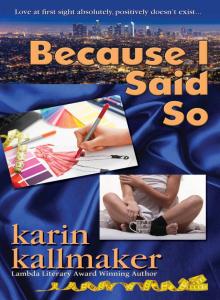 Because I Said So
Because I Said So Blue Collar Lesbian Erotica
Blue Collar Lesbian Erotica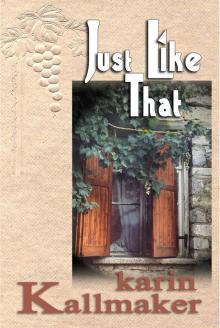 Just Like That
Just Like That In Deep Waters_Cruising the Seas
In Deep Waters_Cruising the Seas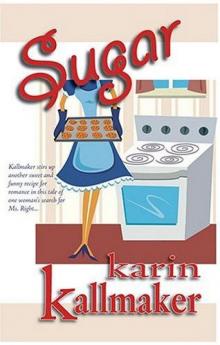 Sugar
Sugar Love by the Numbers
Love by the Numbers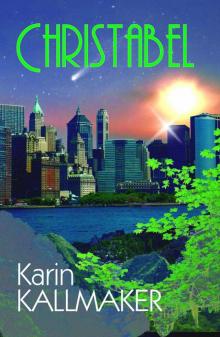 Christabel
Christabel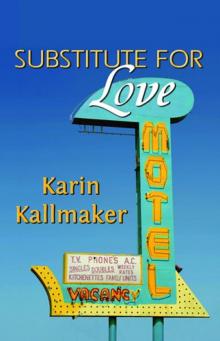 Substitute for Love
Substitute for Love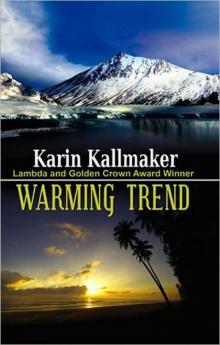 Warming Trend
Warming Trend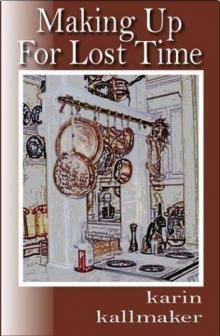 Making Up for Lost Time
Making Up for Lost Time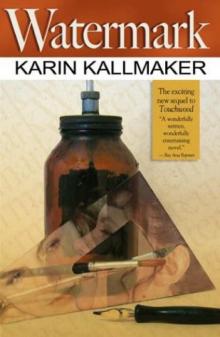 Watermark
Watermark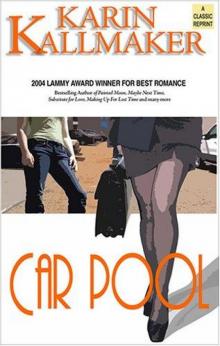 Car Pool
Car Pool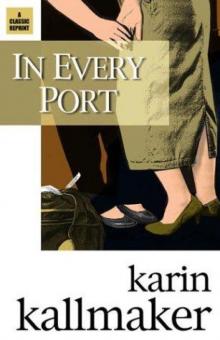 In Every Port
In Every Port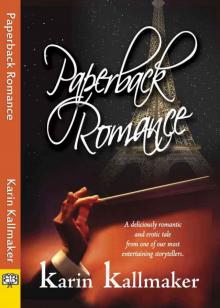 Paperback Romance
Paperback Romance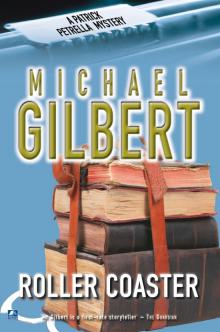 Roller Coaster
Roller Coaster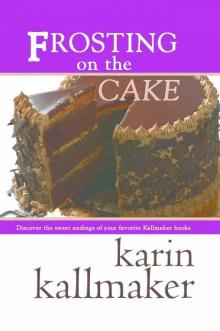 Frosting on the Cake
Frosting on the Cake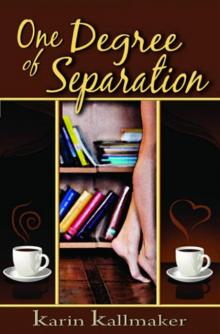 One Degree of Separation
One Degree of Separation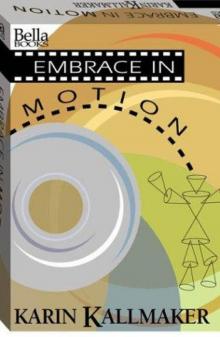 Embrace in Motion
Embrace in Motion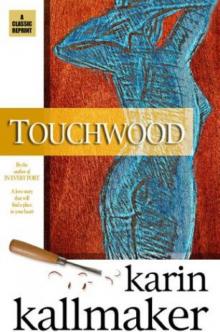 Touchwood
Touchwood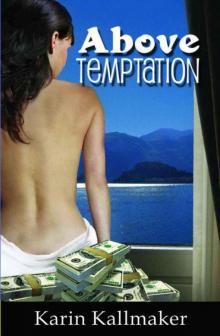 Above Temptation
Above Temptation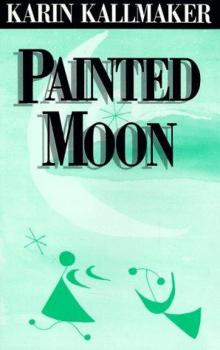 Painted Moon
Painted Moon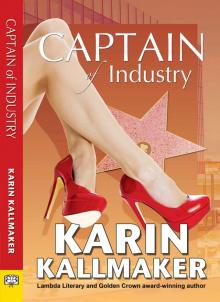 Captain of Industry
Captain of Industry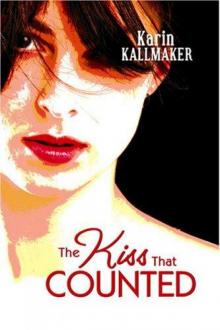 The Kiss That Counted
The Kiss That Counted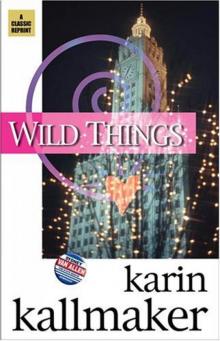 Wild Things
Wild Things